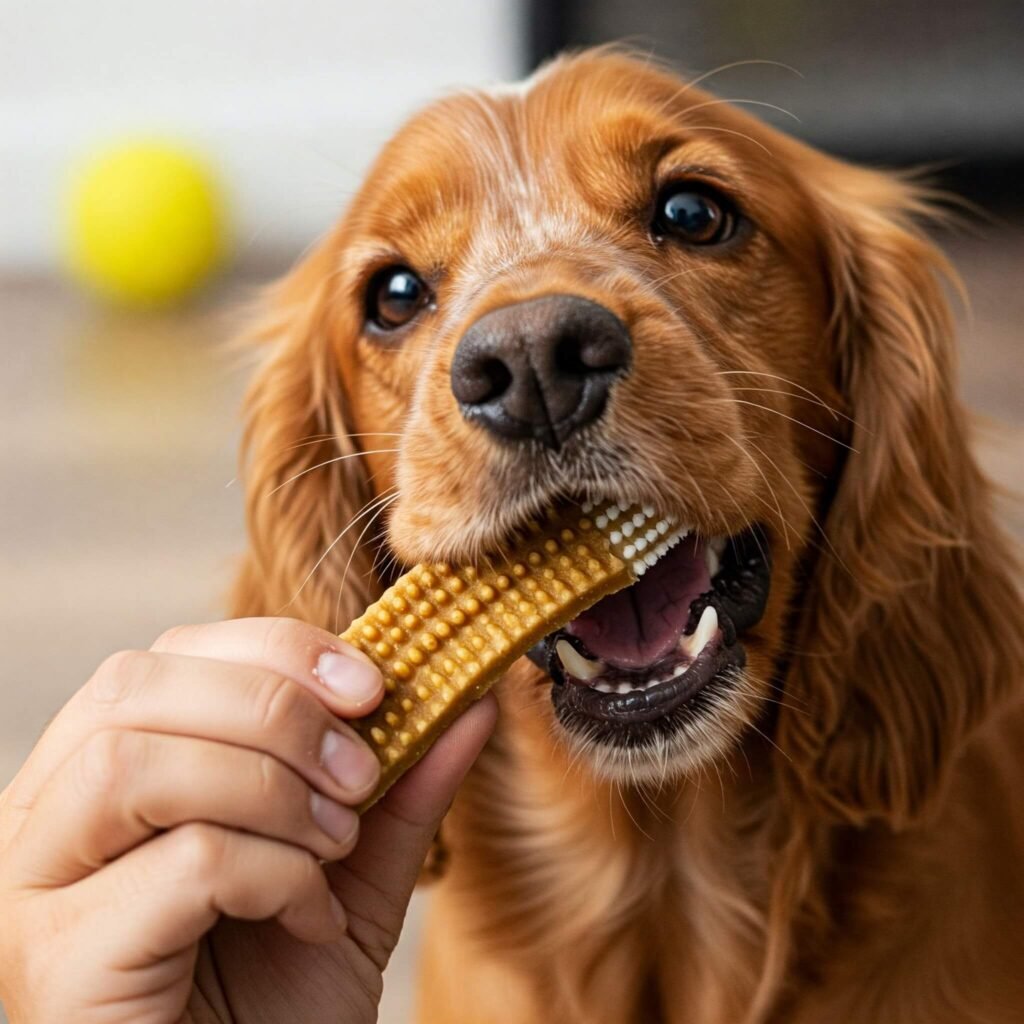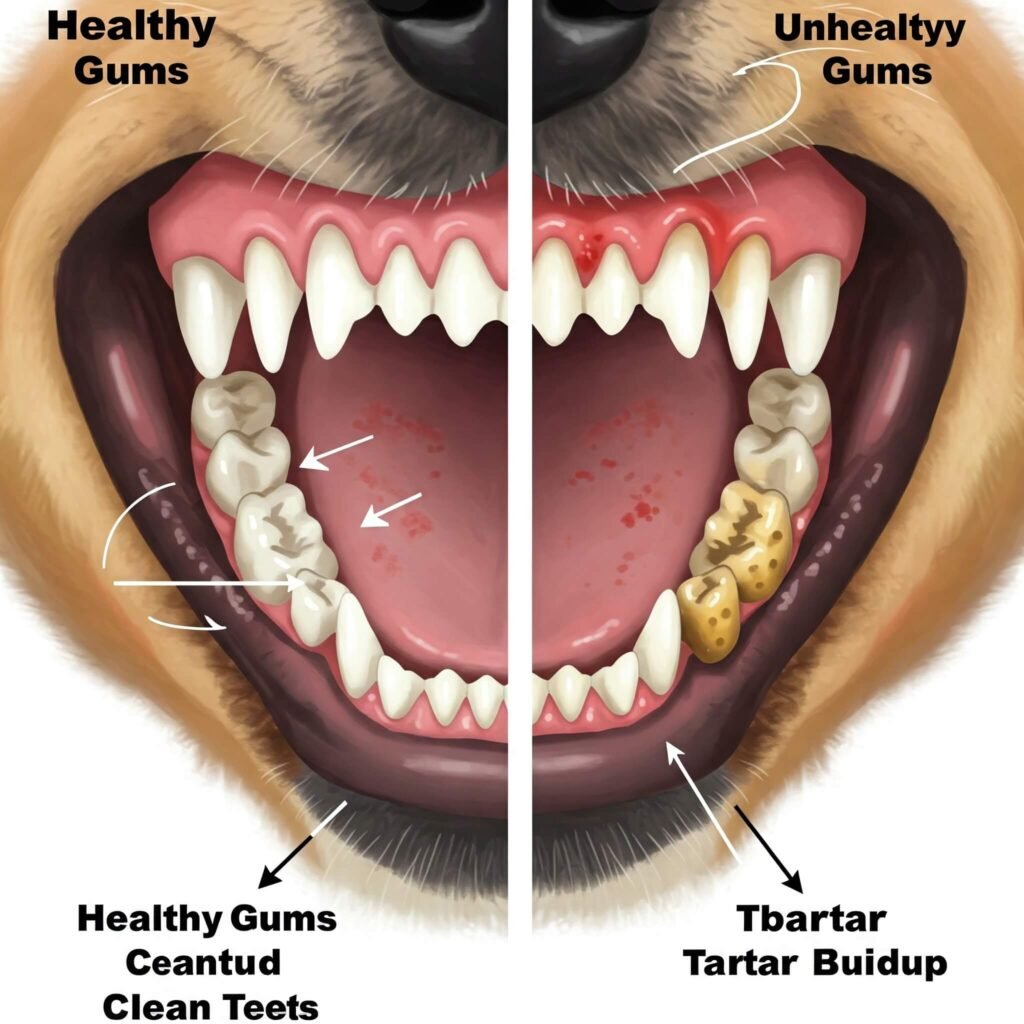Are you often greeted by a less-than-pleasant cloud of doggy breath? Chances are, you’re not alone! Bad breath in dogs, while common, isn’t just an annoyance – indeed, it can be a sign of underlying dental issues. This ultimate guide to dog dental care will walk you through everything you need to know to keep your furry friend’s mouth healthy, their breath fresh, and their tail wagging with joy.
Why is Dog Dental Care So Important?
Just like us, dogs need regular dental care to maintain their overall health. Ignoring your dog’s teeth can lead to a host of problems beyond just bad breath. For example:
- First, Periodontal Disease is a common bacterial infection that affects the gums and supporting structures of the teeth. Consequently, if left untreated, it can cause pain, tooth loss, and even impact major organs like the heart, liver, and kidneys.
- Furthermore, dental issues like cavities, abscesses, and gum inflammation can cause significant pain for your dog, even if they don’t show obvious signs.
- In addition, advanced dental disease often leads to irreversible tooth loss, thereby affecting your dog’s ability to eat comfortably.
- Finally, bacteria from dental infections can enter the bloodstream and potentially contribute to problems in other parts of the body.
Therefore, investing in your dog’s dental care is an investment in their long-term health and well-being.
Your Comprehensive Dog Dental Care Toolkit
To effectively tackle bad breath and maintain your dog’s oral hygiene, you’ll need the right tools and knowledge. Here’s what, specifically, your dog dental care toolkit should include:
- Dog Toothbrush and Toothpaste: Never use human toothpaste on your dog, because it contains ingredients that can be harmful. Instead, opt for toothpaste specifically formulated for dogs, often available in palatable flavors like chicken or peanut butter. Also, look for soft-bristled toothbrushes designed for canine mouths.

- Dental Treats and Chews: Certain dental treats and chews are designed to help reduce plaque and tartar buildup as your dog chews. For this reason, look for reputable brands with scientifically proven efficacy.
- [Outbound Reference Link to a reputable veterinary dental society or organization discussing the benefits of dental chews]
- Dental Wipes: These can be a good option for introducing dental care or for quick touch-ups between brushings.
- Oral Rinses and Water Additives: Some vets recommend specific oral rinses or water additives to help reduce bacteria in your dog’s mouth. However, always consult your veterinarian before using these products.
- Professional Dental Cleanings: Regular professional dental cleanings performed by your veterinarian are crucial for removing tartar buildup below the gum line, since brushing alone cannot reach it.
Establishing a Consistent Dog Dental Care Routine
Consistency is key when it comes to dog dental care. Thus, aim to incorporate these practices into your regular routine:
- Daily Brushing:Ideally, brush your dog’s teeth every day. However, even a few times a week is better than nothing.
- Start slowly and make it a positive experience with praise and treats.
- Focus on the outer surfaces of the teeth, where most plaque accumulates.
- Don’t worry about getting the inside surfaces perfectly clean, as your dog’s tongue helps with that.
- Offer Dental Treats and Chews Regularly: Follow the manufacturer’s instructions and choose appropriate sizes for your dog.
- Use Dental Wipes: Incorporate these a few times a week for extra cleaning.
- Consider Oral Rinses or Water Additives (as recommended by your vet): Ensure you follow the vet’s instructions carefully.
- Schedule Regular Professional Dental Cleanings: Your veterinarian will recommend a cleaning schedule based on your dog’s breed, age, and oral health. Without a doubt, this is a vital part of comprehensive dog dental care.
Tackling Dog Bad Breath: Actionable Tips
If your primary concern is your dog’s bad breath, here are some actionable steps you can take as part of your dog dental care routine:
- First, rule out underlying medical conditions. Bad breath can sometimes be a symptom of other health issues, such as kidney disease or diabetes. Therefore, consult your veterinarian to rule out any underlying medical problems.
- Next, focus on plaque and tartar removal. As mentioned earlier, these are the primary culprits behind bad breath. Consequently, consistent brushing and professional cleanings are essential.
- Furthermore, consider dietary changes. Some foods can contribute to bad breath. Talk to your vet about a balanced diet that supports oral health.
- Moreover, ensure adequate hydration. Encourage your dog to drink plenty of water, which helps rinse away food particles and bacteria.
- Finally, offer breath-freshening treats. Certain dental treats contain ingredients that can help freshen breath.

Recognizing Signs of Dental Problems in Dogs
Being proactive about dog dental care means being able to recognize potential problems early. Therefore, watch out for these signs:
- Persistent bad breath
- Excessive drooling
- Red, swollen, or bleeding gums
- Loose or missing teeth
- Difficulty chewing or reluctance to eat hard food
- Pawing at the mouth
- Pain or sensitivity around the mouth
- Yellow or brown tartar buildup on the teeth

If you notice any of these signs, schedule a veterinary dental checkup immediately.
The Long-Term Benefits of Excellent Dog Dental Care
Committing to a consistent dog dental care routine offers numerous long-term benefits for your beloved companion. For instance:
- Firstly, fresher breath means you can say goodbye to unpleasant doggy breath and enjoy closer cuddles!
- Secondly, healthier gums and teeth help prevent periodontal disease and tooth loss.
- Thirdly, reduced pain and discomfort ensure your dog can eat comfortably and live pain-free.
- Furthermore, improved overall health helps protect vital organs from the harmful effects of dental bacteria.
- Ultimately, healthy dogs tend to live longer, happier lives.
In conclusion, investing time and effort in your dog dental care is one of the best things you can do for your furry friend’s well-being. It’s not just about fresh breath; rather, it’s about a healthier and happier life.








































